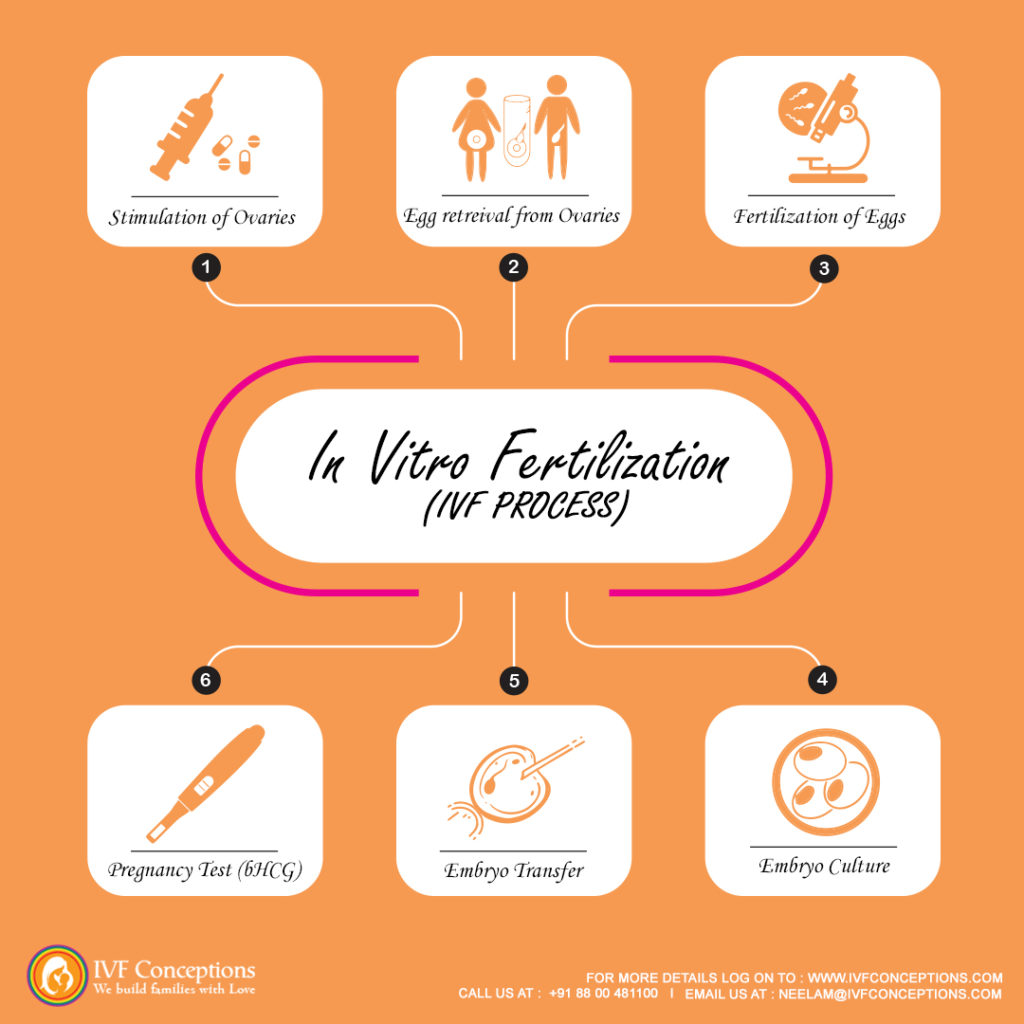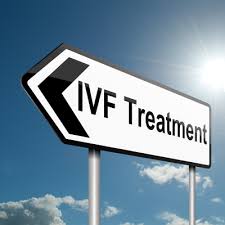Knowing the differences between IVF and IUI can help parents to choose the right infertility treatments.


The main difference between IVF and IUI is that in IVF, eggs are fertilized outside the body in a lab and then implanted into the uterus, while in IUI, sperm is directly placed into the uterus to facilitate natural fertilization. Infertility is a major challenge for couples these days. There are many infertile couples around us. The taboo around infertility is still prevalent. Sometimes couples suffer silently.
What is important is to know that they are not alone and that the right help is available. Furthermore, knowing the difference between IVF and IUI is important.
These infertile couples look for two basic treatments – IUI and IVF. IUI stands for Intrauterine Insemination and IVF stands for In Vitro fertilization. What is the right fertility treatment for any couple, can be known only by doing to a fertility specialist.
He or she can run a series of tests on both partners and take a family history to decide what is the best line of treatment. These days couples are more confused about would-be infertility treatments. They don’t know the difference between IUI and IVF. Both IUI and IVF are the procedures that help a woman to conceive.
The main difference between IVF and IUI is the fact that IVF is a multiple steps procedure that involves egg fertilization, retrieval, and transfer of the egg while in IUI the sperm is directly injected into the uterus so that the time and travel of the sperms can be reduced.
Besides this, as IVF is a more invasive treatment the cost of the IVF process is much higher than the IUI cost.
The degree of time of treatment and preparation is higher in IVF than in IUI.
Begin your surrogacy journey with IVF Conceptions today!
Mobile: +91-8800481100 ( WhatsApp, Line, Viber)
Email: neelam@ivfconceptions.com
Web: www.completesurrogacy.com
Steps in IVF
- Pre-cycle diagnostic testing
- Ovarian stimulation to produce multiple eggs in one phase
- Recovery of the eggs from each ovary
- Fertilization of the eggs in the laboratory by traditional fertilization or ICSI
- Transfer of the embryo to the uterus of the mother or surrogate mother and then follow medication instructions
Step in IUI (intrauterine insemination)
IUI is a treatment where the sperm from the male partner is directly injected into the uterus of the female during ovulation, minimizing the sperm’s journey to the egg.
The female produces one egg during ovulation that is picked up at the end of the fallopian tube where she waits to receive the sperm. In IUI high-quality sperm are then injected into the uterus so as to increase the chances of pregnancy. Besides this, external hormonal support can be given to female parents to boost the chances of conception.
If 3 or more rounds of IUI are done with no success, the next step is to opt for IVF cycles.
Conditions suitable for IVF-When you can go for IVF Process
Most couples these days choose IVF over IUI. Infertility treatment is decided by the doctor and the agency based on many factors. So, the factors when you should first consider IVF are –
- Blocked Fallopian Tubes
- Crossed the age of 38
- When you have decided to use the eggs from an egg donor
- If you do not have enough ovarian reserve
- When you are faced with severe male infertility that can be treated using technologies like IVF with ICSI
- If you require genetic screening
- When you are suffering from advanced endometriosis
Conditions suitable for IUI-When you can go for IUI Process
So, who is IUI recommended for? IUI can be a better treatment as compared to IVF under the following conditions –
- Using donor sperm – When you are opting for the donated sperm from the sperm donor
- Same-Sex couples – Females may opt for sperm from the donor to get pregnant.
- Mild issues with ovulation – Females with mild issues with the ovulation can be treated with IUI using mild medications
- Male fertility preservation – Before cancer treatment or surgery, some men choose to freeze their sperm which could affect their fertility. IUI can be used to achieve pregnancy after surgery, assuming the female partner is fit for pregnancy.
- Cervical Problems- Scarring or hostile cervical mucus will prevent fertilization so IUI can come to your rescue to overcome these barriers.
- When you have at least one of the fallopian tubes blocked.
- If you have enough ovarian reserve
- When you have a normal uterine cavity
- If you have mild issues with ovulation and can start ovulating properly with a few medications.
More resources on this topic:
How does the IVF process work?

 Key differences between IVF and IUI
Key differences between IVF and IUI
There are many other differences between IUI and IVF which are as follows –
- Risk of multiple pregnancies – IUI with medication for fertility brings a significant risk of multiple pregnancies, including several (triplets or more) higher-order.
A good IVF clinic should track the follicles carefully to ensure that only a sufficient number is mature before the IUI, but the risk cannot be eliminated entirely.
Recent progress in IVF (including transferring blastocysts) means that most modern fertility clinics now only transfer one or two embryos per IVF cycle. As a result, IVF patients are at much lower risk of multiple pregnancies than they used to be.
- The time required in the procedures – If you compare these two choices, the time factor cuts both ways. IUI is much shorter than IVF, and if your first cycle is good, it might be the fastest way to get a baby home. However, due to the difference in success rates between the two procedures, some patients may get pregnant faster in their late 30s to early 40s by going straight to IVF instead of waiting until they have had multiple unsuccessful IUI cycles.
- Complexities in the procedure – Once the female partner ovulates, prepared sperm is placed directly in the womb of the woman to assist with fertilization. IUI can be done in conjunction with the natural cycle of a woman or timed to stimulate ovulation with fertility medicines. So, IUI is a less time-consuming and less medically invasive process.
IVF, on the other hand, is a process that consists of several stages and requires more than one procedure: Pre-cycle diagnostic testing, ovarian stimulation to produce multiple eggs in one phase, recovery of the eggs from each ovary, fertilization of the eggs in the laboratory by traditional fertilization or ICSI, and transfer of the embryo to the uterus.
Even with the use of fertility drugs, IUI is less demanding physically than IVF.
- Success rates – It is never easy to be precise about the success rates of given infertility treatment as there are so many factors surrounding individual cases. But statistically, IUI has lower success rates than IVF and that also depends on the age of the woman, sperm quality, and treatment plan.
- IUI with fertility medication: An average success rate for patients under 35 years of age is 8% to 15%. For patients over 40, ranging from 2% to 5% per cycle.
- IVF using a woman’s own eggs: median success rates for patients under 35 years of age vary from 40% to 45%. Females over 42 vary from 10% to 15%.
- Cost of the procedure – One of the concerns that many couples have about fertility treatments is the cost of both IUI and IVF. Generally, insurance plans do not cover these procedures.
IUI can be a lot less expensive than IVF. IVF’s average cost will vary from $11,000 to $15,000 per cycle. Nonetheless, it may be more cost-effective to go straight to an IVF cycle, rather than dealing with multiple failed IUI cycles, depending on your condition and the chances of conceiving via IUI.
How many times should you do IUI before IVF?
For women who are under the age of 40, it is recommended to do 3 cycles of IUIs. If still not successful, then she can move to IVF Cycle.
For women who are higher than 40 years, it is advised to opt for IVF rather than trying luck with IUI. In female age play, a crucial role, and wasting precious months in IUI can diminish the success rate of IVF later.
Which is more effective IUI or IVF?
For women who are under 35 years of age, the average success rate for IUI with fertility medicine, such as Clomid, is 8-15% per cycle. However, for IVF, the numbers are much higher. For women below 35 years of age, the success rate of IVF ranges from 40%-45%, and for women above 43, the success rate of IVF drop to 15%.
More resources on this topic:

 Conclusion
Conclusion
Therefore, one should have clarity about both the procedures before opting for any one of them. Gain knowledge by watching educational videos about this topic.
For knowing the best line of treatment for you- it is advised to seek consultation from an experienced fertility doctor. If by any chance you see an inability to conceive, do not wait to seek medical help. With time, infertility becomes more prominent and chances of success become low.
If you’d like to learn more about IVF, Egg Donation, or surrogacy services globally, check out the rest of our website at IVF Conceptions.
I am Neelam Chhagani, a chief Surrogacy Consultant, representing IVF Conceptions, with more than 10 years of experience in international surrogacy. It will be my great pleasure to assist you. With vast experience and deep subject knowledge, I guide and support intended parents, understanding the surrogacy process in terms of process, costs, and legalities country-wise and then manage their journey with one of our programs/partners worldwide. So, basically, saving their ton of research time and money and thus, channelizing you toward the right direction.
